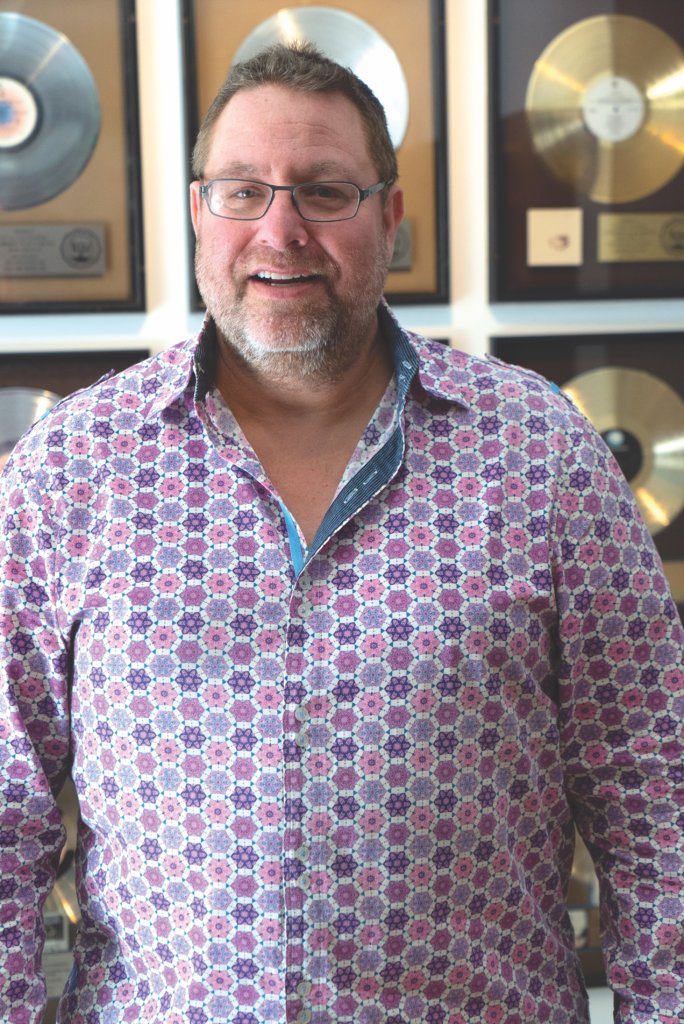In my 28+ years as a record producer and founder of The Music Success Workshop, I have learned quite a bit about achieving the goal of making it in the music industry.
Along the way I have observed many mistakes musicians have made. Most of them are commonly made. So, I made a list for my weekly emailed tip sheets called The 9 Music Career-Killing Mistakes.
Here are few of them:
- 1. Assuming you know how the industry works.
- 2. Waiting to be discovered.
- 3. Cheap sounding demo production.
(To get the full “9 Mistakes” list, along with vital information on how to avoid them, sign up for my weekly Music Success tip emails – free – at joesolo.com.)
But the biggest mistake of all is NOT listed there. So, we’re gaping to talk about it right here, right now.
The Biggest Music Career-Killing Mistake is . . .
Not learning from the mistakes YOU make.
Know that doing so will require a level of self-reflection and self-honesty that is 100% . . . well . . . honest. And that could be very difficult for us creative types. Because our musical creations are our babies. We often feel our music reflects the very person we feel we are at the deepest level of the soul. And receiving criticism about anything to do with who we are or what our music means to us can be downright painful.
So, we rationalize. We deflect. We create diversion in the conversation. This is the ego at work.
The #1 Reason Why People Fail
I speak on achieving music success all over the planet – at music conventions, universities, industry conferences, etc.
And after each talk, audience members who have questions that they didn’t get a chance to ask during the talk lineup outside. I stay to answer each person’s question until the line is empty. This can take hours. I’ve done this well over hundred times and if there is one question I get asked more than any others it’s this:
What do you think is the best thing I can do to make it?
My answer – 3 words: “Control your ego.”
I go on . . . “In fact, uncontrolled ego, it’s the number one reason why people don’t make it.” When they let ego get in the way of learning how they can improve – which is often already habituated by regular life before we hit our teenage years – far too often, people don’t ever obtain the mindset needed so they can learn the lessons from the multitude of mistakes and failures that their journey through the music industry has to teach them.
You see, making it is only partially about your music. And don’t get me wrong – the music has to be undeniably great. But moreover, being successful is truly about developing yourself both as a musician and as a person.
So, having good character counts. Authenticity counts. Reputation counts.

Personal Growth As Success Ingredient
When I speak of ego, I’m not referring to the part of your ego that makes you feel good for the accomplishments in music you’ve made. But rather the part that protects you from feeling pain.
But if music is your life and you deeply desire to make your living at it, personal growth is monumentally necessary. And growth is painful. But by cultivating the habit of putting ego aside to take in what people have to say about you, your music, and where you are in your music business journey will result in having grown much.
And it’s that growth which is key to achieving your music dream.
To put it another way, success in music is truly a race against yourself to arrive at a mental place where you have a fully matured character. Because that breeds confidence. And confidence is infectious to people. With it, you will attract fans, press, A&R people, music supervisors, managers, publishers, and other music industry personnel who are vital to getting the music success you desire.
The 64 Bar Harmonica Intro
It’s also a smart idea to learn from the mistakes that other people have made so you can make your own brand new mistakes to learn from. No point in repeating the same ones that your colleagues have made.
A few years ago, I was producing an artist who really wanted to make his name as the top harmonica player on Earth. And he also wanted to be known as a hit pop singer/songwriter.
I thought this was a great goal to have. I always encourage thinking big, dreaming big, and taking the action necessary to bring these thoughts and ideas to full fruition.
Success on a global scale in the music business always starts with good, tight songwriting.
So, we started discussing the parts arrangement of the first song of four that he hired me to produce for him. He played me his demo . . . and I kid you not . . . it started with a 64 bar harmonica solo! Keep in mind one of his goals was to be an accomplished, top selling pop artist, worldwide – and that means being on radio. I advised him, “If you want to be on the radio and be successful at selling records in the pop world you’re going to have to let go of the 64 bar harmonica solo at the beginning of the song, as no pop station would ever play such a thing.”
I suggested that it might be better to start out with a bar or two of harmonica to hint at what is to come later in the song. Then at the appropriate time have an eight bar harmonica solo where he could deliver his talent in such a way that it would leave people wanting even more harmonica later on in the song.
Always Leave Them Wanting More
As you well know the old saying “always leave them wanting more” is a basic show business tenant that has done well across the range of entertainment ever since the days of vaudeville. The reason I know this is because my grandfather and his 11 brothers and sisters were traveling vaudeville performers from the 1920s. And he used to tell me all kinds of techniques to keep audience interest in their act at a maximum. So, this was the thinking I wanted to apply to the harmonica plan: Give the listener a little taste of harmonica pizazz upfront, eight bars of mind blowing world-class harmonica playing during the solo section, and then at the end of the song we would re-introduce his playing as the primary melodic instrument during the song’s outro.
One of the primary benefits of hiring a seasoned record producer is he or she brings pure objectivity to the project. I have not lived with and breathed somebody else’s music for years and years on end like they have. So, when I introduced the concept of “always leaving them wanting more” with regard to his harmonica playing, and suggested we reduce his 64 bar solo intro down to just 2 . . . he freaked out.
You see, he had lived with the arrangement that was on the demo version of his song for so long – along with his idea that the lengthy intro solo would be the mechanism which would certainly and instantly propel him upwards to being the obvious top player on the planet – that he had an extremely difficult time wrapping his brain around the idea of the more pop oriented arrangement of a short, 2-bar intro.
And here’s the kicker of the story: Through the years he had been told by many, many people to consider shortening the long intro. But in response his ego had adopted the attitude “they just don’t understand my music.”
I’ve heard this rationalization from artists hundreds of times throughout my career. Ugh.
It’s one thing if half the people like your music and half don’t. This happens a lot. And in such a case, I would suggest seeing if there is some fat you can trim off the song, and also look for opportunities to bolster the best received aspects it. But if 8 or 9 out of 10 people are not liking your material, that is worth paying close attention to. Stick your ego in a closet and lock the door, and rework your material in different directions until it undeniably resonates with listeners.
I want to leave you with an additional handful of common music career-killing mistakes you can learn from. After reading these, see if you can come up with your own list of mistakes you’ve made. And then think about what you learned from them. And more important, identify those mistakes that you could still learn from. Remember, be honest with yourself. Because integrity counts, too. And self-integrity is the most important form of it.
- Being close minded to other people’s ideas.
- Relying on technology to get your vocals in tune.
- Setting your instrument’s volume waaaaay too loud for the size of the venue. (Us guitarists need to pay particular attention to this one.)
- Expecting industry gate-keepers to listen to your music submissions right away.
- Submitting too much of your material at once.
- Submitting material and not properly following up.
- Acting like a jerk.
ABOUT THE AUTHOR
Joe Solo is the record producer who developed Macy Gray, and is founder of The Music Success Workshop. He is also CEO of Joe Solo Music+Entertainment Inc. His client roster/credits includes: Michael Jackson, Fergie, Warner Bros Records, Sony Entertainment, Apple, Epic Records, and many others. For more useful tips go to joesolo.com

*main photo by Nenad Stojkovic, used under a Creative Commons license.
